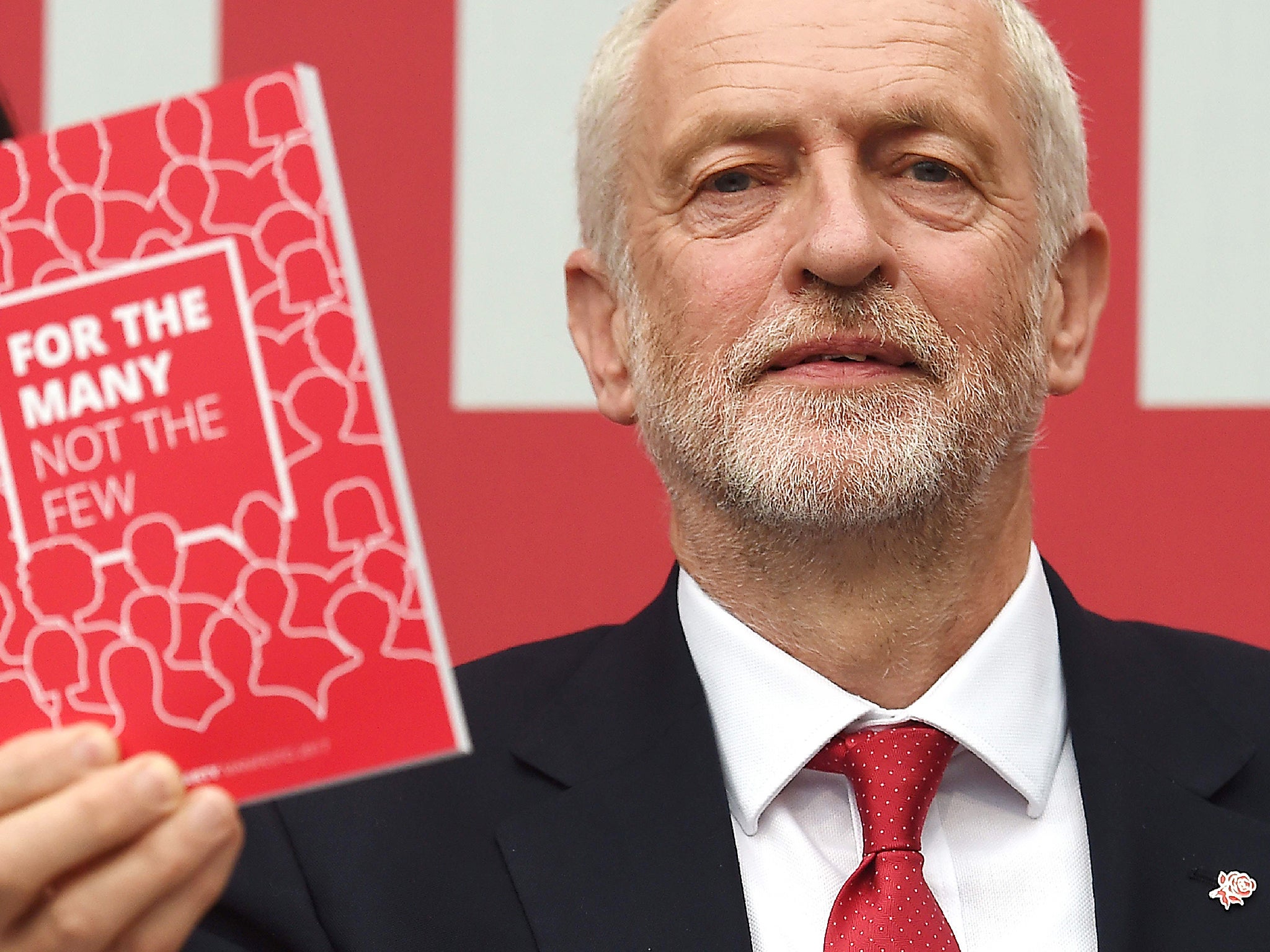A fine manifesto – if Labour were still fighting the last election
This prospectus, coherent though it is, would require a vast amount of government time and energy at a time when it would be fully occupied by leaving the European Union

The Labour manifesto, published today, is one of the clearest and most coherent prospectuses offered to the British electorate in recent years. As The Independent said of the draft that was leaked last week, many of its central pledges are welcome.
The higher spending on the NHS and social care, £8bn a year after five years, is realistic to the point of timidity, but essential. The extra £14bn-a-year spending on childcare, early years, schools and 16-19 education is also an important investment in young people. There are many other smaller promises that are socially just: reversing some of the worst cuts in benefits, including the “bedroom tax”; abolishing employment tribunal fees; and employing more border staff, firefighters and tax collectors.
There are, however, other spending commitments that, however desirable they may seem in principle, should not be the first call on scarce public money. The biggest single item in Labour’s manifesto is the abolition of tuition fees and restoration of maintenance grants, which would cost a huge £11bn a year. Inspiring as the idea of free education for all might seem, if that kind of money is available there are better ways of spending it.
Indeed, the most striking feature of Labour’s manifesto is that it does little to reverse the planned cuts in tax credits for low-paid workers that were pencilled in two chancellors ago, by George Osborne. Those cuts for the working poor that are still in the Conservatives’ spending plans would, therefore, largely go ahead under a Labour government. This cannot be right: to subsidise higher education, most of whose beneficiaries will be better off than the average taxpayer, at the expense of support for the working poor.
The other big-ticket item in the manifesto is a sweeping programme of renationalisation, taking the Royal Mail, railways, parts of the energy and water utilities back into public ownership. On this subject, the detailed costings document published by John McDonnell, the shadow Chancellor, to accompany the manifesto, was silent. Mr McDonnell himself, normally one of the party’s more fluent media performers, was reduced to burbling on the BBC Radio 4 Today programme when asked how the water industry would be taken into public ownership.
Despite the huge sums often bandied about, none of these nationalisations is much a cost to the taxpayer. If the Government buys a utility company, it would have to pay for it, but it would acquire an asset on behalf of the nation. However, the acquisition would have to be financed by borrowing, and the cost of this borrowing is nowhere to be found either in the manifesto or in Mr McDonnell’s document.

As for how the money would be raised to pay for this ambitious programme, several of the sums seem based on hope rather than a hard-headed analysis of how people and companies might behave. The “Robin Hood” tax on financial transactions is, for example, likely to drive those transactions abroad, in the absence of global agreement. But the same principle applies, perhaps less dramatically, to the plans to raise corporation tax and income tax on the higher-paid 5 per cent of earners. The Independent is not convinced that the sums really add up.
The impression is left of policies that have hardly begun to be thought through, which would consume a vast amount of government time and energy, at a time when politicians and officials would already be fully occupied by the preparations for leaving the European Union.
It is at this point that the manifesto starts to feel as if it is an impressive document that has been prepared for the election before this one. That is not surprising, given the short time over which it was prepared and the extent to which it is simply a sharper and more convincing version of the manifesto on which Ed Miliband fought the 2015 election.
Since last week’s leak, the section on Brexit has been clarified slightly, making it clear that “freedom of movement will end when we leave the EU”, but the attitude of a Labour government to the failure to agree Brexit terms is still ambiguous.
Overall, this is a manifesto of a party that means well, but which has allowed itself to be diverted into old-fashioned policies that comfort its activists, but which would not do enough to tackle the inequality in Britain about which they say they care.
Join our commenting forum
Join thought-provoking conversations, follow other Independent readers and see their replies
Comments
Bookmark popover
Removed from bookmarks